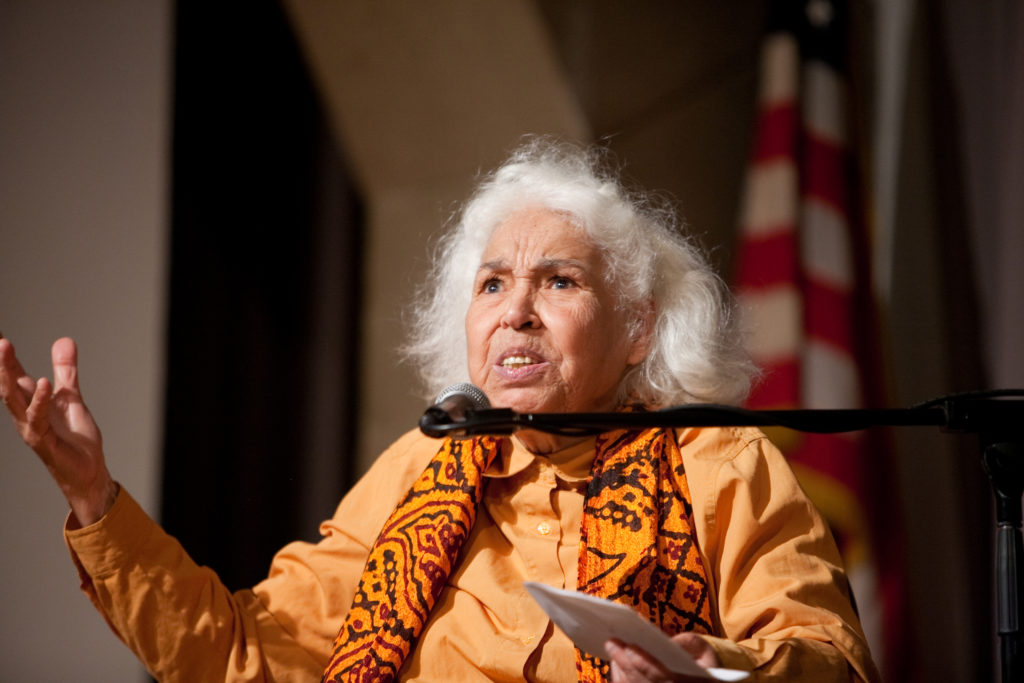
Fourth Annual Arthur Miller Freedom to Write Lecture by Nawal El Saadawi.
© Beowulf Sheehan/PEN American Center for non-profit editorial use only.
This Story belongs to the Writers in Prison Committee.
Biography
Nawal El Saadawi was born in Egypt in October 1931. She studied medicine at the University of Cairo and graduated as a doctor in 1955. Her first novel, Memoirs of a Women Doctor, was published in 1958.
After practising as a doctor for ten years she became Director of the Government Health Education Department in 1966 where she stayed until 1972 until her dismissal for political activism. The following year her acclaimed novel Woman at Point Zero was published, followed in 1977 by the non-fiction The Hidden Face of Eve.
In 1981 Nawal El Saadawi was arrested and imprisoned for “crimes against the state”. She was released in 1983 and then published Memoirs From The Women’s Prison, a compilation of essays written while incarcerated.
Since then El Saadawi has continued to write and promote women’s rights. She is one of the best known rights activists in Egypt and is frequently invited to address seminars and take part in literary events worldwide. However, in 1993 she was forced to flee Egypt due to threats from Islamic fundamentalists. El Saadawi returned to her homeland three years later and in 2004 put herself forward as a candidate for Egypt’s presidential elections (though she later withdrew from the race citing “unfair” restrictions on candidates). She continued to receive threats and attacks for her books. In 2007, she was threatened with the loss of her Egyptian citizenship by a case brought before the court by fundamentalist lawyer Saad Sharif. The State Council’s Court of Administrative Justice threw the case out in May 2008, stating that citizens had the right to hold and profess dissident beliefs. She passed away on 21st March 2021.
Writing Sample
To amputate the imagination is no less dangerous than amputating the limbs of the human body, or circumcision of the clitori in young girls.
But people rarely talk about “amputation” of the imagination in creative works, perhaps because the imagination does not bleed or suffer from physical pain. Yet a human body with an amputated imagination is no less incapacitated than a body with no limbs.
Freedom for creative expression, the health and wholeness of the imagination are essential if we’re to struggle effectively against religious violence, or political tyranny exercised by the state or within the family. A free wholesome imagination is our protection against double standards and dichotomies in society inherited from the slave society, against prejudices arising from religion class, gender, race or colour.
From Women, Creativity and Politics Cairo-January 2001.
Useful links
Biography of Nawal el-Saadawi: https://www.sahistory.org.za/archive/biography-nawal-el-saadawi-sierra-hussey.
Zed Books – The Essential Nawal el-Saadawi and other links to her works: https://www.zedbooks.net/shop/book/the-essential-nawal-el-saadawi/.
Wikipedia page for Nawal el-Saadawi: https://en.wikipedia.org/wiki/Nawal_El_Saadawi.